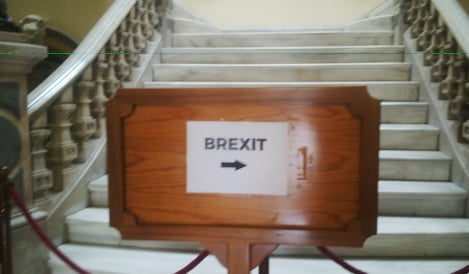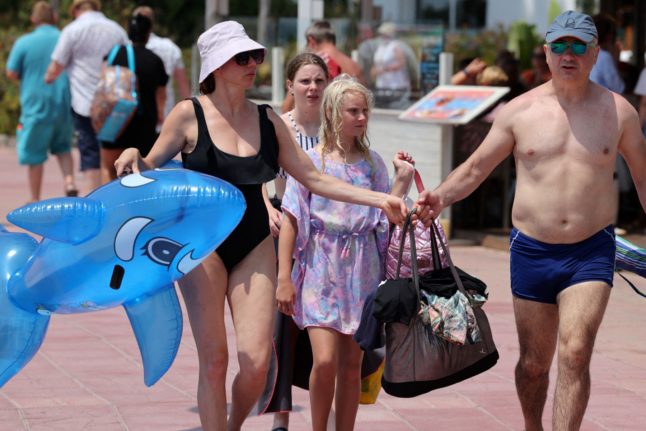With the British government pushing its controversial Immigration Bill through parliament last week, the focus was on the rights of EU citizens. In particular, the ruling that requires immigrants to pay into the NHS, regardless of their existing tax contributions, seems especially unfair. The government’s dramatic U-turn to remove the fee for healthcare workers was welcome, but the issue of double taxation for other EU citizens remains.
On this side of the Channel, Brits in Europe are mourning the loss of their freedom of movement rights, which enabled us to make new lives for ourselves in EU countries. Those opportunities, that we took full advantage of, are sadly being taken away from future generations. Those of us already residing here must focus on protecting the lives we’ve built.
Regarding our status in Europe, Michael Gove recently wrote to Michel Barnier. In his letter, Gove criticised the EU for being too slow to implement systems to secure future residency rights for British citizens. Gove cited the UK’s ‘settled status’ scheme for EU citizens in the UK and expressed concerns that the EU would not meet its Withdrawal Agreement obligations in a timely fashion.
For those of us living in Spain, what will be required by the Spanish authorities in order for our status to be ‘settled’?
Here’s what we know so far. Spain’s existing identity card for foreigners, known as the ‘tarjeta de identidad de extranjero’ (TIE) will replace the current documentation for British residents.
The TIE proves legal status and is issued to foreigners authorised to stay in Spain for longer than six months. Those Brits registering for the first time will be issued with a TIE; those holding existing residency documents will be able to swap these for the TIE.
Unlike in the UK, where EU citizens need to apply for their new ‘settled status’, Spain is adopting a ‘declaratory’ registration system. The British scheme requires EU citizens to apply for their status, at the risk of being rejected or offered a lower, time-limited ‘pre-settled status’.
With EU countries free to choose their own registration systems, we’re fortunate that Spain has chosen a simpler approach, with no risk of existing legal residents being refused the new status. Brits in France aren’t so lucky, as France has adopted a similar application system to the UK.
As Brits in Spain, in effect, don’t need to reapply for their legal status, there are no specific registration deadlines. Our existing green residency certificates/cards will remain valid, even after the transition period, as confirmed by the British Ambassador to Spain, Hugh Elliott.

Sue Wilson with British Ambassador Hugh Elliott. Photo: S Wilson.
The Ambassador told me:“I know that, because of the suspension of residency appointments during the current state of emergency, many UK nationals are concerned about their ability to obtain the correct documentation before 31 December. I want to reassure people on two points. If you already have the green residency certificate, your core rights are protected and it remains a valid document, even after the end of the transition period.”
“If you don’t yet have your green residency certificate there is, likewise, no need for alarm. We continue to advise people to get an appointment as soon as you can. However, as long as you are living in Spain and can prove that you satisfy the legal conditions of residence (i.e. sufficient income and access to healthcare) by 31 December 2020, your rights are assured even if you are not able to get the physical document before the end of the year.”
Throughout the Brexit debate, and the coronavirus crisis, I’ve been grateful for the way the Spanish authorities have dealt with the many difficulties. They haven’t got everything right – what government has in these troubled times – but they’ve made us feel safe and welcome. In addition, we’ve had the support of the British Embassy in Madrid, which has been much appreciated.
The Spanish government’s commitment to protecting our rights was reiterated by the Ambassador, who said: “My colleagues and I are in regular contact with the Spanish authorities at national and regional level and I know that they share our strong commitment to citizens’ rights issues. They have provided a website in English for UK Nationals (see below) and increased their capacity to deal with appointments in areas where the most British people live.”
Wherever the next few months and years take us, I’m not going anywhere. Spain is my home and I’m ‘settled’. Whether I hold a green paper or an identity card in my hand, I’m a resident – legally and permanently – and I know how lucky that makes me.
By Sue Wilson – Chair of Bremain in Spain

More information:
The Spanish government has a dedicated Brexit page in English HERE
The UK foreign office issues official guidance for Brits living in Spain HERE
READ MORE:



 Please whitelist us to continue reading.
Please whitelist us to continue reading.
Member comments